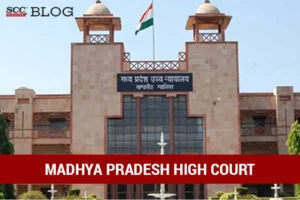Madhya Pradesh High Court: While quashing the FIR for the offence punishable under Sections 376(2)(N), 506 and 34 of Penal Code, 1860 (IPC) and its subsequent criminal proceedings, a Single bench comprising of Deepak Kumar Agarwal,* J., observed that more than one year is sufficient time for a prudent woman to realize the difference between “mere breach of promise” and “giving a false promise to marry”.
Brief Facts
In the instant matter, the petitioner preferred a petition under Section 482 of the Criminal Procedure Code, 1973 (CrPC) for quashing of FIR for the offence punishable under Sections 376(2)(N), 506 and 34 of the IPC and its subsequent criminal proceedings lodged by the prosecutrix alleging that the petitioner made physical relationship with her on the false pretext of marriage.
Submissions
According to the prosecutrix, the petitioner and prosecutrix were in relationship from 2020- 2021 and on various occasion she stayed in Seondha with the petitioner. The prosecutrix contended that the petitioner used to ignore her whenever she talked about solemnizing marriage. On 10-07-2021, when the prosecutrix again came back to Seondha, the petitioner assaulted her in the car.
The petitioner contended that the FIR is lodged with the mala fide intention just to take undue benefit of the petitioner. The petitioner further contended that the prosecutrix is a mature lady who has three children, and they were in a relationship for a significant period, therefore, her consent was not obtained by misrepresentation. On the other hand, the prosecutrix opposed the petitioner’s contention and stated that it cannot be said that her consent was not obtained by misconception of fact, when she believed the petitioner’s promise to marry her.
Court’s Observation
While relying on various judgments of the Supreme Court, the Court observed that there is a distinction between “mere breach of promise” and “giving a false promise to marry”. The Court stated that “only a false promise to marry made with an intention to deceive a woman would vitiate the woman’s consent being obtained under misconception of fact, but mere breach of promise cannot be said to be a false promise.”
The Court observed that in the light of facts and circumstances of the present case, the prosecutrix was physical relationship with petitioner for in more than one year, moreover, she was a willing participant and went to petitioner’s house in Seondha, therefore, it cannot be concluded that her consent was obtained by misconception of fact.
The Court stated that “Near about more than one year time is sufficient time for a prudent woman to realize as to whether the promise of marriage made by the petitioner is false from its very inception or there is a possibility of breach of promise.”
The Court opined that the present case is of breach of promise to marry and not of giving a false promise to marry, because the prosecutrix continued to be in relationship with the petitioner till the lodging of the FIR, even after he ignore her request for solemnizing their marriage.
Court’s Verdict
While quashing the impugned FIR and its subsequent criminal proceedings in the form of charge-sheet, the Court held that on light of facts and circumstances of the present case, the prosecution of the petitioner for the offences will amount to “nothing but abuse of process of law.”
[Amar Singh Rajput v. State of M.P., 2023 SCC OnLine MP 2078, order dated 13-07-2023]
Advocates who appeared in this case :
Mr. Sameer Kumar Shrivastava, Counsel for the Petitioners;
Mr. Nirmal Sharma – Public Prosecutor;
Mr. Harish Sharma, Counsel for the Respondent No. 2.

